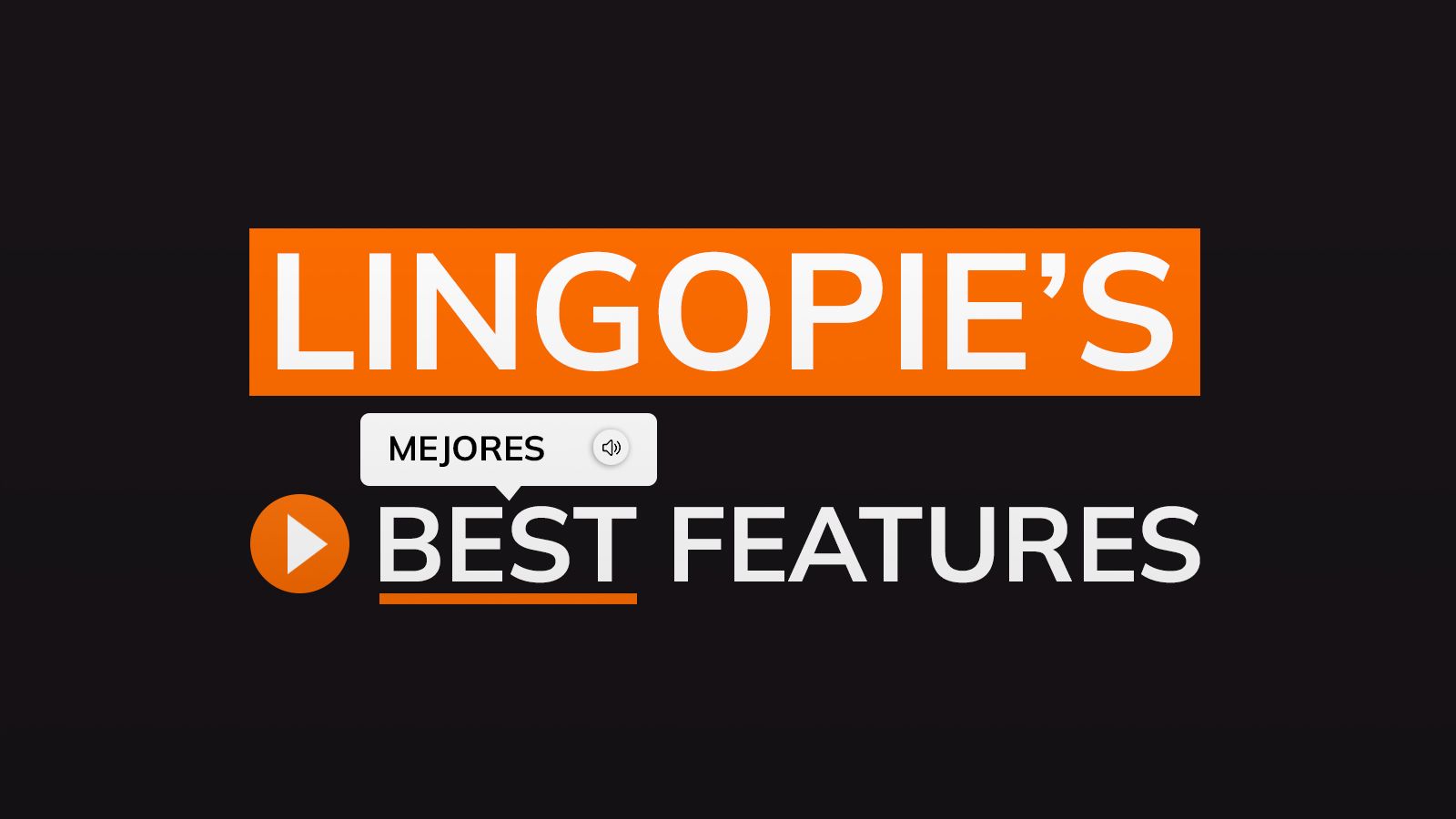2025 is here, and it's time to stop playing around with your language learning goals. No more random "study" sessions or promising yourself you'll "start tomorrow" – this is your year to actually become the confident speaker you've always wanted to be.
In this guide, we're cutting through the generic vague promises learners usually commit to. In this post, we'll explore 10 practical, achievable resolutions that will actually move the needle in your language journey. Let's begin!
- 20+ Kiwi Slang Words That'll Make You Sound Less Like a Tourist
- How Long Does it Take To Learn Spanish?
- Why Do You Sound Different In a Foreign Language?
Why do New Year's resolutions fail and how to succeed?
Did you know that about 90% of New Year's resolutions crash and burn by February? And no, it's not because you forgot to write them down, create a vision board, or do any of those "manifestation" rituals everyone talks about.
The real reason most language learning resolutions fail is much simpler – they're either too vague ("I want to be fluent") or wildly unrealistic ("I'll study for 3 hours every single day"). Success in language learning isn't about making grand promises on January 1st. It's about setting specific, achievable goals that you can actually stick to when the initial motivation fades.
This means replacing goals like "master Spanish" with actionable targets like "have a 5-minute conversation with a native speaker every week" or "learn 10 new practical phrases every Wednesday." These are the kinds of resolutions that stick – and they're exactly what we'll focus on in our list.

New Year's Resolutions For Language Learners
Watch One Episode in Your Target Language Every Day
You're probably already binge-watching shows anyway, so why not make it count? Watching one episode daily in your target language is arguably the most enjoyable way to achieve fluency. While watching, you're actually training your ear to natural speech patterns, picking up authentic expressions, and absorbing cultural nuances.
Making this resolution stick is incredibly simple with Lingopie. Unlike traditional streaming platforms, Lingopie turns every show into an interactive learning experience. Click on any word to see its meaning, save useful phrases with a single tap, and use dual subtitles to boost your comprehension. Start with 10-minute episodes from Netflix or Disney+ if a full show feels overwhelming – Lingopie's diverse library includes short-form content perfect for beginners.
Master One New Grammar Rule Monthly
Instead of trying to learn everything at once, focus on one grammar rule each month. For example, spend January mastering past tense, February on future tense, and so on. Use this rule in your daily life - in conversations, writing, and reading. By practicing one rule at a time, you'll actually remember it rather than getting overwhelmed.
Here's an example:
| Month | Focus Area | Why It's Important |
|---|---|---|
| January | Present Tense Basics | The foundation of everyday conversation |
| February | Past Simple Tense | Talk about your experiences and tell stories |
| March | Future Tense | Make plans and talk about your goals |
| April | Common Irregular Verbs | Master the exceptions to the rules you've learned |
| May | Question Formation | Learn to ask for information and start conversations |
| June | Possessives & Pronouns | Talk about belonging and avoid repeating nouns |
| July | Basic Prepositions | Describe where things are and how to get places |
| August | Common Conjunctions | Connect your ideas and make longer sentences |
| September | Modal Verbs (can/should/would) | Express possibilities and make polite requests |
| October | Comparative Forms | Compare things and express preferences |
| November | Basic Conditionals | Talk about possibilities and make plans |
| December | Reflexive Verbs | Talk about daily routines and activities |
This is just a suggested order - feel free to adjust based on your language goals. The key is focusing on one rule at a time and practicing it regularly in real situations before moving on to the next one.

Master the 100 Most Common Expressions First
In most languages, just 100 key expressions can help you handle about 80% of daily conversations. This means that instead of learning 100+ words per week, you can prioritize practical phrases like "I'd like to," "Could you explain," or "I think that..." These high-frequency expressions are your fast track to having real conversations.
The beauty of learning through TV shows and movies is that you'll hear these common expressions used naturally and repeatedly. On Lingopie, you'll catch native speakers using these phrases in real-life contexts – from casual coffee shop chats to workplace conversations.
Keep a Weekly Journal in Your Target Language
Start small - write just three sentences about your day, once a week. Don't worry about making mistakes or using perfect grammar. Write about simple things like what you ate, where you went, or how you felt. Over time, you'll naturally want to write more, and you'll see how much your language skills improve when you look back at your old entries.

Join One Language Exchange Group Or Group Class
Joining a language exchange group or class gives you something textbooks never can: real-time conversation practice, instant feedback, and the accountability to keep showing up. Look for groups that meet regularly (weekly is ideal) and have a mix of levels – beginners can learn from more advanced students, while advanced learners reinforce their knowledge by helping others.
Whether through local meetups, online communities, or structured classes, the key is committing to at least three months of regular participation. The social pressure of having others expect you to show up might just be the push you need to stick to your language learning goals.
Build a "Culture Connection" Project
Pick one thing about your target language's culture that interests you - it could be food, music, movies, or holidays. Spend time learning about it, trying it out, and understanding why it's important. For example, if you choose food, learn to cook five traditional dishes using recipes in your target language. This makes learning more fun and helps you understand how people really live in that culture.
Learn Five Songs in Your Target Language
Songs are one of the best ways to learn a language - they're fun, easy to remember, and help you speak more naturally. Pick five songs you really like and make sure they aren't too difficult for your level. Start with simple pop songs, and spend about a month learning each one. Listen to them while you're doing other things like driving or cleaning. Before you know it, you'll be using phrases from these songs in real conversations and your pronunciation will get better too.
You can find songs with translations on Lingopie Music, which makes it easy to understand what you're singing. If you prefer, you can also use YouTube Music or Spotify to create your own playlist of songs in your target language. Many popular songs have translations in the comments section, making it simple to understand the meaning while you learn.
Perfect Your Self-Introduction Story
Create a simple 1-minute introduction about yourself that you can say confidently. Include basic things like your name, where you're from, what you do, and what you like. Practice it until you can say it without thinking too hard. This gives you a confidence boost when meeting new people and helps you make a good first impression in your target language.

Learn to Tell One Joke Perfectly
Being able to tell a joke in your target language shows you really understand the culture and how the language works. Pick one short, simple joke that's popular in your target language - avoid translating jokes from English since humor often doesn't translate well. Practice it until you can tell it with the right timing and pronunciation. When you can make native speakers laugh, you'll know you're really getting somewhere with the language.
You can pick up great jokes and understand their nuances by watching comedy shows on Lingopie. Pay attention to how native speakers deliver their jokes - their timing, tone, and expressions. Seeing how people react to jokes in TV shows and movies also helps you understand what kind of humor works in that culture. Start with simple situational jokes before moving on to more complex wordplay or cultural references.
Change Your Phone's Language
This might seem scary at first, but it's actually a great way to learn everyday words. You already know where everything is on your phone, so you'll quickly learn what words mean. Start with the basics like "settings," "messages," and "camera." Keep a screenshot of the English version just in case you need help at first.
Make Your Language Learning Resolutions Stick
Making a language learning resolution is one thing - sticking to it is another. The key to success in 2025 is choosing goals that are both realistic and enjoyable. Each resolution we've shared is designed to fit naturally into your daily life, making it easier to stay consistent with your learning journey.
Remember, you don't have to tackle all ten resolutions at once. Start with one or two that excite you the most, and gradually add more as you build confidence. Whether it's watching a daily episode, learning your first joke, or mastering common expressions, each small step brings you closer to fluency.
Ready to kick-start your language learning journey? Give Lingopie a try. With thousands of TV shows and movies, interactive subtitles, and built-in learning tools, it turns your entertainment time into effective language practice.

Start your free trial today and see how enjoyable language learning can be when you're watching content you actually love.





![Lingopie Grammar Feature Review: How It Helps You Learn Faster [Guide]](/blog/content/images/2025/12/Grammar-Index--1-.jpg)


![Is Lingopie Free? Plans, Pricing & Free Trial Guide [2026]](/blog/content/images/size/w300/2026/01/Is-Lingopie-Free.jpg)
![How To Gift Lingopie: One-Year vs Lifetime Subscription [GUIDE]](/blog/content/images/size/w300/2026/01/lingopie-gift-subscription.jpg)
![What is Lingopie? Complete Platform Guide [2026]](/blog/content/images/size/w300/2026/01/What-is-Lingopie.jpg)